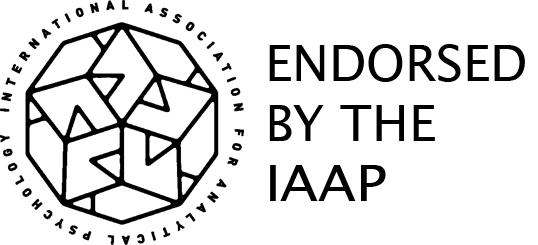Date
- Jan 18 2025
- Expired!
Time
PT- 12:30 pm - 5:00 pm
Local Time
- Timezone: America/New_York
- Date: Jan 18 2025
- Time: 2:30 pm - 7:00 pm
Cost
- $120.00
Speaker
- Sam Naifeh
Location
- C.G.Jung Institute of San Francisco
- 2040 Gough Street, San Francisco, CA 94109, USA
Organiser

C.G. Jung Institute of San Francisco
Website
https://jungian.directory/iaap-organisations/cgjisf/Spiritus Contra Spiritum: Impasses in Addiction Treatment
Analyzing strengths and weaknesses in models of Substance Use Disorder (SUD), addiction, and treatment through case study: what the clinician should know
Analytic/dynamic work generally assumes hidden, deeper forces manifest as visible symptoms, reliance on transference repetition and interpretation of core family constellation conflict, production of structural and, therefore, behavioral change through insight. Analytic/dynamic etiological theories in SUD and addiction have resulted in misleading myths or narratives such as addiction is caused by weak ego and/or character disorder, lies in session are best understood as psychopathology, alcoholics/addicts are not analyzable.
Originally derived from psychoanalysis, Cognitive Behavioral Theories (CBT) have come to assume such misleading myths of SUD/addictions as: mind is an outdated concept making addiction a learned, reward-driven behavior that can be unlearned; CBT has robust, statistically sound outcomes data; CBT practitioners don’t need to study analytical writers, least of all Freud.
Social theories of addiction tend to convey misleading basic assumptions: punishment is a form of deterrence, custodial treatment is effective, harm reduction provides sufficient social structural change to promote eventual abstinence; 12-Step Programs are superior to professional treatment, e.g. the 28 day Minnesota Model has proven efficacy; Social Recovery Houses offer a stable healthy environment, loyal, supportive family are seen as enablers.
Misleading myths of psychopharmacology include: all addictions revolve around the dopamine reward system, neuroimaging of active brain pathways will finally locate the “Holy Grail”; psychedelic epiphanies offer one trail permanent change (ibogaine, psilocybin, LSD); craving is a measurable patient experience—reducing it is a goal of medication therapies.
This seminar will use case study to consider principles/practices of Effective Clinical Treatment.
Failure is an option—the most likely, predictable outcome of any treatment episode is a relapse. Addictions are chronic relapsing conditions, analogous to the cancers. Recovery has developmental sequences. Recovery is not a binary Won/Lost; Early phases require different work. Treatment is not a solo endeavor. Fentanyl is a different, lethal creature. Its use is best treated as akin to unintended suicidality. Clinicians need to visit AA/NA/AlAnon meetings
*CG Jung letter to Bill Wilson, AA cofounder, January 30, 1961
-
Number of hours credit
4

